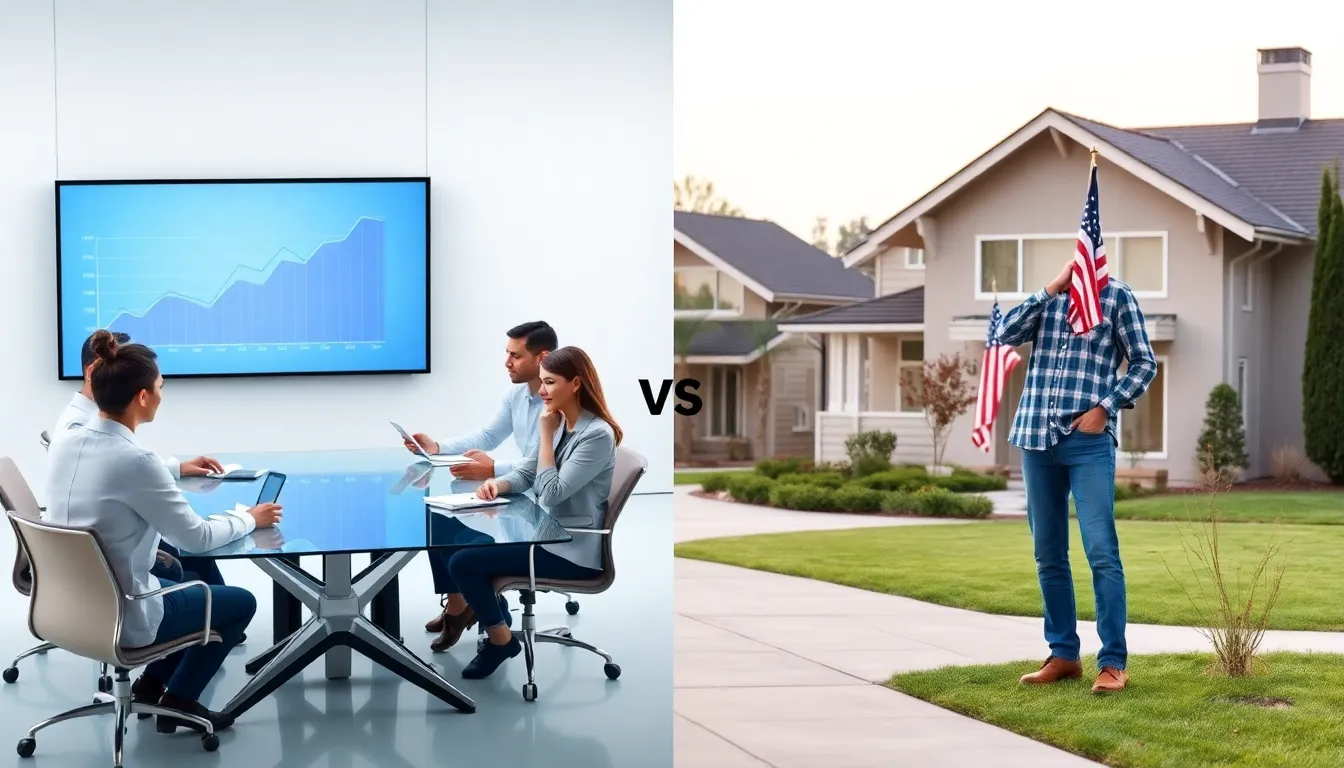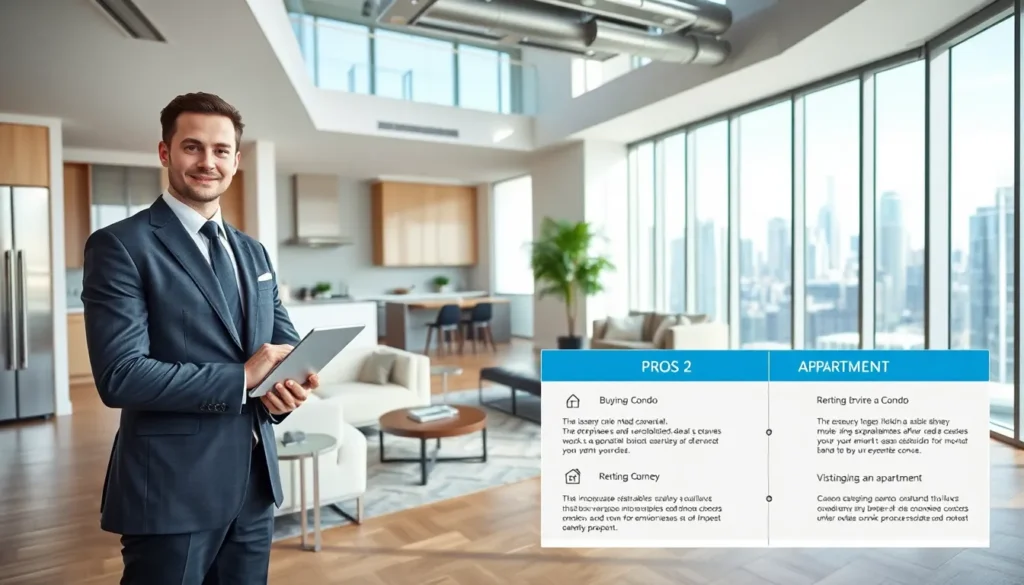Table of Contents
ToggleThe eternal debate: renting versus buying a house. It’s one of those age-old questions often accompanied by eyebrow raises, deep sighs, and perhaps an RBI (really big indecision). Renting might sound like a flexible, carefree option, while buying can seem like the ultimate adulting achievement. But which path truly leads to the golden streets of homeownership? Buckle up, because we’re diving into the pros and cons of each option. Spoiler: it’s not just about the money, there’s a whole lot more at stake.
Understanding Renting and Buying

Pros and Cons of Renting
Renting can often feel like a double-edged sword, there are perks, but there are downsides too.
Pros of Renting
First off, let’s talk about the wins. One of the biggest advantages of renting is flexibility. Renters can relocate for a job, new adventure, or simply on a whim without the hassle of selling a property. Maintenance worries? Not on your plate. Landlords typically take care of major repairs, leaving renters free to focus on brunch, binge-watching their favorite shows, or, let’s be honest, scrolling through social media. There’s also the uncertainty of home prices. Renters need not worry about market fluctuations affecting their assets. If the neighborhood goes downhill, they can pack up and leave.
Cons of Renting
Of course, it’s not all sunshine and rainbows. Renters don’t build equity. Monthly payments might feel like a money pit, all for someone else’s wallet. And then there’s the landlord situation. Some can be fabulous: others are akin to the Grinch. Plus, renters might face restrictions on what they can do with the space, good luck painting that living room fuchsia. A lack of long-term security can keep them up at night as leases end and potential rent hikes loom.
Pros and Cons of Buying
Now, let’s flip the coin and examine buying a house.
Pros of Buying
Buying a home can feel like crossing the finish line in a marathon (complete with confetti). Homeowners build equity over time, making their investment more worthwhile. There’s also the satisfaction of having complete control over their space. Want to knock down a wall? Go for it. Plus, there are potential tax benefits, like deductions on mortgage interest and property taxes.
Cons of Buying
On the flip side, it’s not just sunshine and confetti. Homeownership can mean significant upfront costs, including down payments and closing fees. And unlike rentals, homeowners can’t simply call the landlord when the water heater breaks. They also face market risks: home values can decrease, making it a potential financial rollercoaster.
Financial Considerations
Monthly Payments and Long-Term Costs
When it comes to finances, the numbers can get tricky. Renters typically pay a fixed monthly fee, which may include utilities, making it relatively simple to budget. In contrast, mortgage payments can fluctuate based on interest rates and property taxes. Over time, these expenses can pile up, making it essential to weigh the long-term costs carefully.
Down Payments and Upfront Costs
Homebuyers usually face a hefty down payment, typically 20% of the home’s value. This can be a substantial hurdle for many. Add closing costs into the mix, and it feels like someone is tossing more bricks to the already tough climb. Renters, on the other hand, might only need a security deposit and first month’s rent, which is far less daunting.
Tax Implications and Benefits
Homeownership can come with valuable tax deductions, specifically for interest paid on mortgages. This can significantly lessen tax burdens, making buying seem all the more attractive. Renters receive no such benefit, but they enjoy the simplicity of not having to navigate the complexities of property taxes.
Lifestyle Factors to Consider
Flexibility vs Stability
Renting offers unparalleled flexibility. Want to move to the ocean? Go for it. Changing jobs? No problem. This adaptability is perfect for individuals who value lifestyle fluidity. On the other hand, buying is more stable. A homeowner invests in not only a property but a community, giving them roots. This stability can be incredibly valuable, especially for families planning their futures.
Impact on Lifestyle and Family Planning
It’s also essential to consider long-term goals. Buying a home can be a strong foundation for family planning, children need a stable environment, after all. Also, with more space, families can grow without high costs. But, renting provides opportunities for exploration, visible in the social life of those who haven’t yet planted their roots.
Market Trends and Future Considerations
Real Estate Market Analysis
The housing market fluctuates like a yo-yo, trends vary by region, time, and even season. Potential buyers must keep a close eye on market predictions. In some areas, homes are flying off the shelves: in others, they’re gathering dust. Understanding these trends can play a crucial role in decision-making, timing can either be a buyer’s best friend or worst enemy.
Interest Rates and Economic Conditions
Interest rates heavily influence the affordability of mortgages. A low rate can significantly decrease monthly payments. Conversely, higher rates can make buying a house a challenging job. Economic conditions also matter, pay attention to job growth in the local area, as it might affect housing prices down the line.
Making the Decision: Key Takeaways
Deciding between renting and buying isn’t a one-size-fits-all choice. It requires consideration of personal financial situations, long-term goals, and lifestyle preferences. Renters enjoy flexibility, minimal responsibilities, and lower upfront costs but miss out on equity. Buyers can reap an investment reward and stability but must navigate market trends and upfront costs. Understanding these facets can help individuals or families make informed choices.



